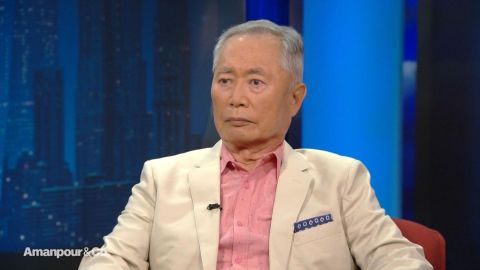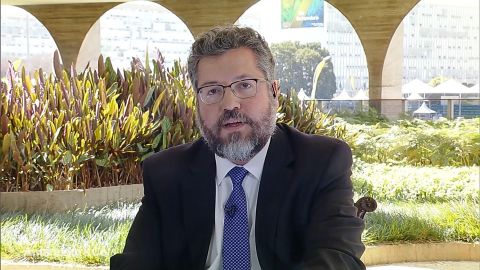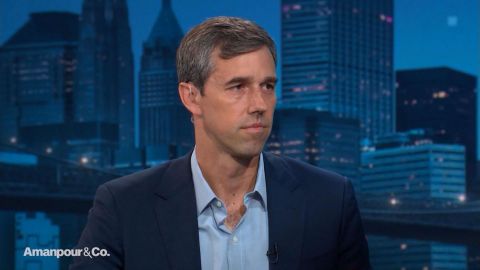Read Transcript EXPAND
CHRISTIANE AMANPOUR: And I want to ask you whether you think that there is a crisis, given that the fires are raging much, much higher, and as I said, 85 percent higher than this time last year? Can you just answer that question?
ARAUJO: Yes, of course. So, as I said, it’s higher than last year but it’s a bit, more or less half what it was in the years 2003, 2004, 2005. So, the then government was supposed to be fighting the deforestation and it wasn’t. This is the first year that we do this concerted effort with 40,000 people, from armed forces and other agencies in the Amazon fighting the fires. The fires are part natural. They occur every year, whatever you do, because of the season, for dry season. And in part, they are made by people. In this case — in many cases they are criminal and we are trying to find the culprits and there were even people who were coordinating into (INAUDIBLE) to put fires to the forest in order to make the government look bad. So, that’s the kind of people we’re facing. But we are doing whatever we can to find the cases where there is environmental crime being committed and to fight it. But — so, the fact that we are — yes?
AMANPOUR: Sorry. I just — you know, this is difficult with the satellite delay sometimes. But, you know, the president was blaming international NGOs. Do you really believe that yourself? I mean, are you continuing to blame international NGOs for these fires?
ARAUJO: No, we don’t blame international NGOs. In some cases, the NGOs, environmental NGOs that are in Brazil are great. In other cases, we don’t know what they do, what their aims are. But we’re not blaming the fires on them, blaming the fires — I mean, we’re not blaming. I mean, we are just saying the fires are partly natural, part come from criminal activity that should be prosecuted.
AMANPOUR: OK. So, let’s get down to what the criminal activity would be. I mean, the broader issue, isn’t it, is whether you as the government of Brazil believe that the Amazon rainforest, you might not like to hear this, but is the public good. Is yours, is the neighboring countries, but also the world’s carbon sinkhole, it is the world’s lungs, it is the home of so many species and biodiversity that if extinguished will be irreplaceable. So, I want to know whether you, the Brazilian government, agrees that this is something not just for your own country people, which you do obviously have to address, but this is a huge public good in the public domain.
ARAUJO: Yes. Well, first of all, we think that the part of the Amazon that is inside Brazilian territory we can — we have the means to take care of it and we, of course, recognize its importance like that of ecosystems around the world.
About This Episode EXPAND
Beto O’Rourke joins Christiane Amanpour to explain how he would combat the crisis, as well as his stance on gun control and his standing in the race for the presidential nomination. Ernesto Araújo, Brazil’s Foreign Minister, discusses the Amazon rainforest fires. George Takei sits down with Hari Sreenivasan to discuss his new memoir, “They Called Us Enemy.”
LEARN MORE


